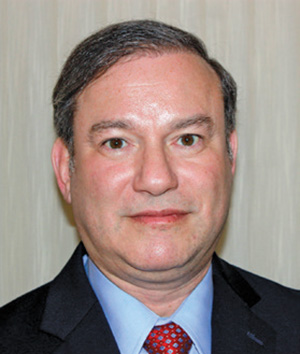
When people ask “How are you doing?” we typically reply “Baruch Hashem.” One might assume that this readily translates into “Thank God.” However, based upon what we learned in Parshat Yisro, we may be surprised to learn that this is not necessarily the case.
Yisro, Moshe’s father-in-law, came out to the wilderness to meet with Moshe. After they exchanged pleasantries, Moshe brought Yisro up to date on all the miracles and plagues that afflicted Pharaoh and how the new Jewish nation was saved at the crossing of the Yam Suf. We then read that Yisro rejoiced over everything that Hashem had done for Israel and he exclaimed, “Blessed be God” (18:10).
Curiously, the Gemara in Sanhedrin (94a) quotes a sage as saying that it was disgraceful for Moshe and the 600,000 Jews who were redeemed from Egypt that none of them ever said “blessed be God” before Yisro did. This was the first recorded historical moment, apparently, that anyone thought to say “Baruch Hashem.”
Yet, we have to ask how could that be? Didn’t we read in a previous parsha how Moshe and the Jewish nation sang praise? Didn’t Miriam and the women join her in singing praise as well? Although they did not specifically use the words “baruch Hashem,” didn’t this count as well?
R’ Eliyahu Hoffman asked this question. He came up with a novel distinction between thanking God and blessing God, as when we say “baruch Hashem.” The Gemara in Brachot (60a) teaches us that we must bless Hashem for the good as well as the bad that happens in life. Blessing does not necessarily mean thanking. It means acknowledging Hashem’s divine providence. R’ Hoffman explained that “by blessing Hashem for the good and for the bad, we acknowledge that Hashem is the source of everything. Ultimately, we realize that even what we perceive as bad also comes from Hashem, and thus must, in the grander scheme of things, be for our good, even if it’s sometimes difficult to see how. As the famous expression goes, ‘Gam zu le-tova—this too is for the best.’ Still, because it feels bad for us, it is not possible to obligate one to thank Hashem for it. By blessing Hashem ‘even when it hurts,’ we affirm that our belief in Hashem is stronger than our feelings, emotions and perceptions.”
Of course the new Jewish nation was thankful for the miracles at the sea and how they were saved. That is why they sang songs of praise for having been rescued. To Yisro, though, it was a bittersweet event. Yisro once lived in Egypt. He was once an adviser to Pharaoh. He had hoped that the Egyptians would have come around and acceded to Moshe’s request to let the Jewish people go. He had lost thousands of acquaintances throughout the plagues and the destruction. Yisro could not bring himself to sing songs of thanksgiving. However, he could see that this was all the hand of God. It was, therefore, appropriate to bless God from his perspective for both the good and the bad.
The reason the Talmud seemingly criticized the Jewish people was because they had not yet arrived at the point where they could acknowledge that Hashem should be blessed for both the good and the bad. They were at a simpler level until that point. They were happy that their own necks had been saved. However, they now learned this important lesson from their encounter with Yisro.
So next time we meet a person who seems to be in distress, who may have health problems, who may be struggling financially, and he replies “baruch Hashem” when asked how he is doing, we need to realize that he is not being coy. He is not thanking God for his troubles. He is simply acknowledging that Hashem controls the world and that we need to bless God in good times and in bad.
May we be worthy to have more good times than bad so that we too can sing songs of praise and gratitude in addition to responding “baruch Hashem.”
By Rabbi Dr. Avi Kuperberg
Rabbi Dr. Avi Kuperberg is a forensic clinical psychologist in private practice. He is president of the Chai Riders Motorcycle Club of NY/NJ. He leads the Summit Avenue Shabbos Gemara shiur and minyan in Fair Lawn, NJ and is a member of the International Rabbinical Society. He can be reached at [email protected].













